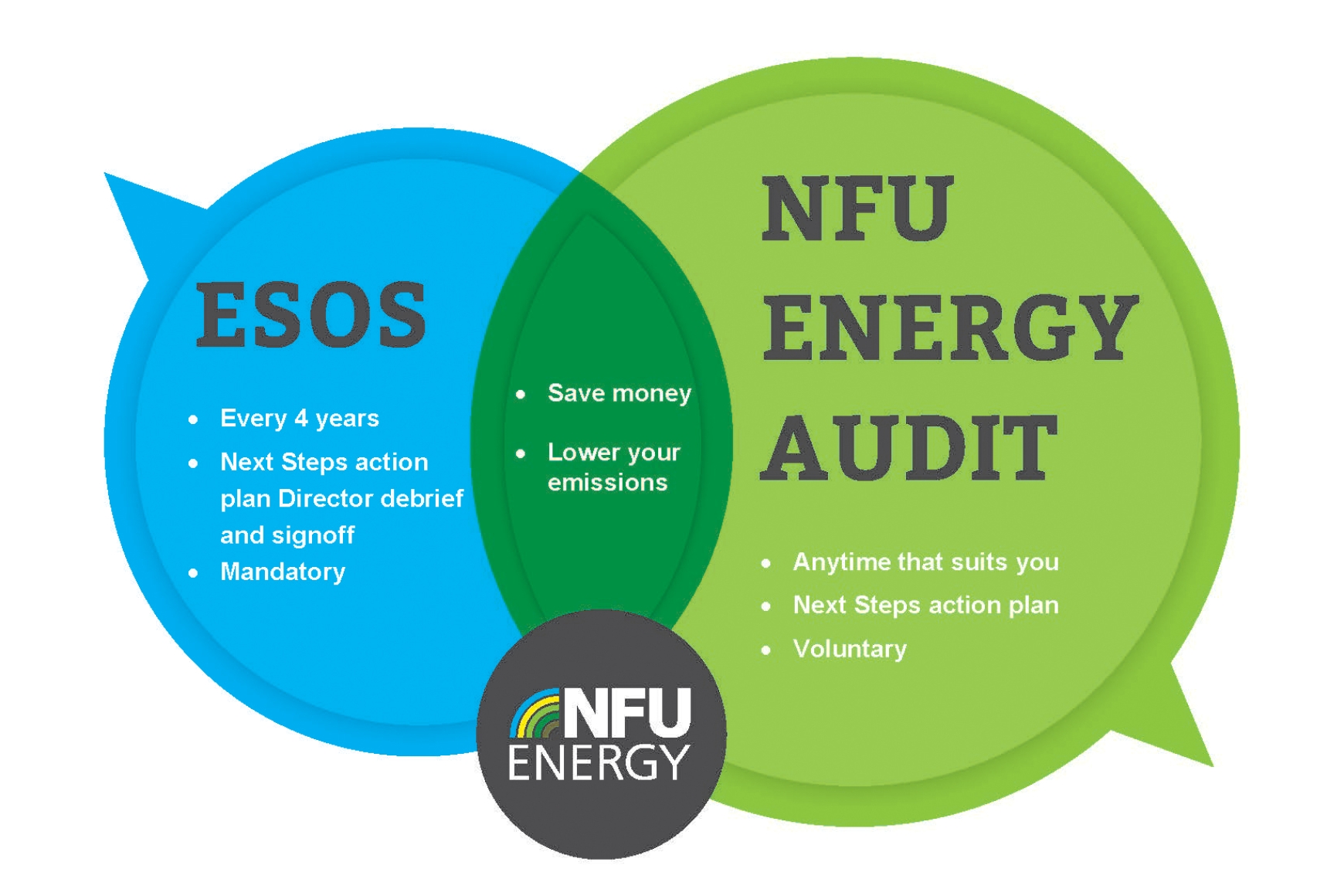An audit is how an official agency (the Environment Agency in the case of ESOS) collects data to inspect a business’s actions.
This is not the case in an NFU Energy audit. We carry these out solely for the use of the individual or business. To give a benchmark and key steps in how to cut costs and resultantly carbon, in both process and usage.
Our ESOS audits and inhouse energy audits uncover considerable opportunities to save energy, costs and emissions. Here are just a few examples representing huge savings in both cost and carbon:
- In 2019, (Phase 2 reporting year for ESOS) this business’s total annual energy consumption for one of our customers was 85,000,000 kWh, we reported findings of potential efficiencies of around 8,000,000 kWh.
- Another in phase 2 (2019) was a business with a total energy consumption of 118,000,000 kWh, in this audit we found potential efficiencies of approximately 20,000,000 kWh.
Both examples above were at large horti sites which are more exposed to energy costs with their big demands for heat and light. In some of our more recent NFU Energy audits we have been working with farmers across other sectors.
- A recent dairy audit we audited was producing 1,800,000 litres of milk per year with 250 cows. Billing records show that the dairy uses an average of 138,578kWh of electricity. Our audit found efficiencies worth approximately 18,000kWh.
*We haven’t included savings or payback as costs of energy and inflation have shifted considerably since the audits were carried out.
What is ESOS?
The Government’s Energy Savings Opportunity Scheme or ‘ESOS’, which has been running since 2014, entered its third phase earlier this year (it is only for businesses with a turn-over of in excess of €50m or with 250 employees or more). Industry is reporting that with the introduction of phase 3, there was a lost opportunity for Government to set out stricter guidelines to get to net zero. The ESOS works to monitor big energy users by means of energy audits scrutinised by the Environment Agency, but the energy savings themselves are not mandatory – which means aside from the reporting, the actual implementation of energy efficiencies are not a legal requirement.
ESOS obligations (for large enough businesses)
Phase 3 audits must be completed, and reports submitted to the Environment Agency, by 5th December 2023. To be ESOS compliant your business must have 12 months’ worth of data available to assess and submit (allowing time for the processing of both to happen).
If you would like any more information on any of the above, please do not hesitate to contact us. Call NFU Energy now on 024 7669 6512 or email [email protected] to get a head start on making savings on your farm or in your business.


